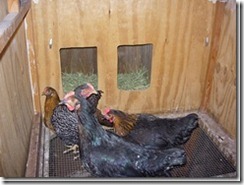Bars represent (from left to right) fresh poultry manure, aged poultry manure, standard poultry compost, ammended poultry compost, fresh dairy manure, aged dairy manure, standard dairy compost, ammended dairy compost, fertilizer.
So the above graph was taken from a study over at NewFarm.org. Basically, nothing really beats the chemical fertilizer because it makes Nitrogen immediately available for the crop to convert. However, the study was done only over a period of one year and it looks like the slow release nature of the nitrogen in manure and amendments and the need for the soil microbiota to “get up to speed” in converting that nitrogen into forms available to the crop means that it will take several years to get to be just as good as if you were using the chemical fertilizer.
So, if you’re looking to switch to organic farming methods then initial heavy compost applications will maintain crop yields during the conversion of chemically fertilized fields to organic management. And of the organic mixtures, it looks like fresh poultry manure and aged poultry manure seems to be the best alternative to the chemical fertilizers.
Just another reason to have a couple of chickens in the back yard to help out with some organic soil amendment if you’re looking to grow some organic vegetables in your backyard.



